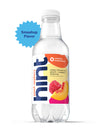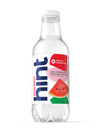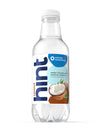Everyone Says, "drink more water." but here's why it's actually so critical
Water, water everywhere. And so many options to drink.
There’s no shortage of advice – or cues from the aisles and aisles of beverage options at the supermarket – to drink more water.
And with good reason. Water is essential for life. Humans can survive for a few weeks without food, but our bodies will begin shutting down and face life-threatening consequences after 72 hours without being hydrated (and in some cases, less than that, depending on your level of exertion, age, and the weather).
That, of course, is on the extreme end of the spectrum. But in our daily lives, providing your body proper hydration is critical for maintaining a number of vital bodily functions, not to mention helping support fresh breath, curb sugar cravings, and nurture healthy skin.
So, what exactly does “proper hydration” entail? We take it as a given that 64 ounces of water is the gold standard for maintaining good health. But is it as simple as that? What do medical experts really have to say on the subject? And more importantly, how do you apply that advice to your own unique health needs and physical circumstances?
Here’s a stat you’ve probably heard quoted several times: 60% of the human adult body is made up of water. The brain and heart? 73% water. And your lungs are 83% water. Even your bones are 31% water!
Plus, the average person loses 2.5 to 3 liters of water per day through sweating, urination, and bowel movements. So replacing that fluid loss is essential to maintaining proper hydration levels. All that water you lose over the course of a day you need to gain back… or else. The thing that many people lose sight of in that “2.5 to 3 liter” fact is that crucial word, “average.” No two bodies are alike, and our internal and external circumstances vary greatly. Your water needs are particular to your own living conditions and figuring out your ideal amount of water intake is vital to your health. Our aim here is to help you determine that ideal — and then give you the tools to reach your goal on a daily basis.
The truth is that it’s hard to know if you’re properly hydrated, and many of the warning signs exhibit themselves subtly – or make other existing conditions worse. In some cases, it can be too late when we find out that chronic under-hydration has led to problems like chronic joint pain or kidney stones, just to name a couple negative outcomes.
In this series of articles, we’re going to explore topics such as:
- How Does Water Get Absorbed into the Body?
- So What Does Water Actually Do When It Gets Dispatched Out to Your Organs?
- Do I Really Need to Drink 8 Glasses of Water Each Day?
- What Are the Risks of Being Under-hydrated?
- So Can I Drink 8 Glasses of Zero-calorie Sodas and Properly Hydrate?
- How Do You Know If You’re Under-Hydrated?


